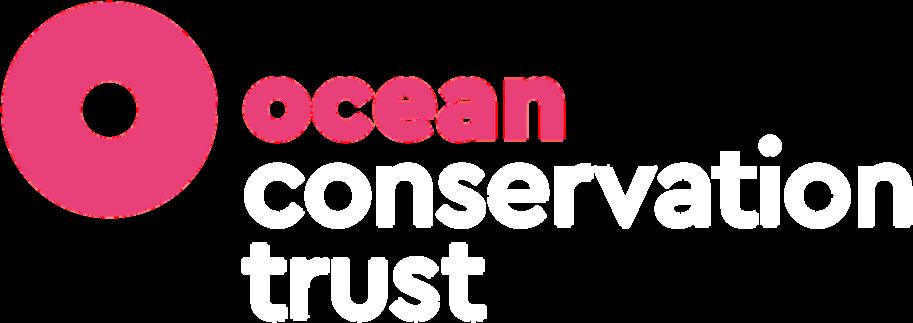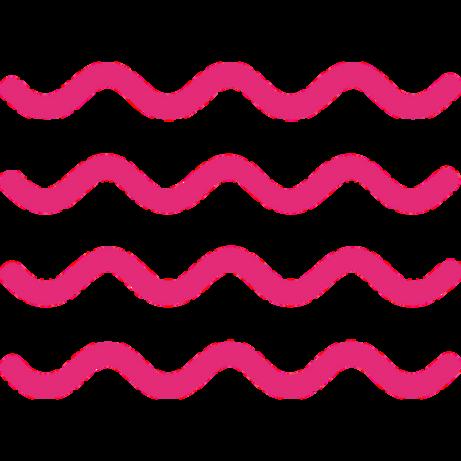YEAR 1 IMPACT REPORT













Our conservation work is centered around people, and through this we have seen that people want to protect the Ocean, but sometimes it’s not clear how they can. Plastic has been the gateway for many people to change how they behave, but what are the next steps for them?
We wanted a fun, interactive way for people to help tackle not only the plastic problem but the other issues that the Ocean faces. Taking inspiration from the Ocean, our team hit on an idea - we developed and launched our #thinkocean challenge in July 2021.


Until World Ocean Day 2031, the #thinkocean challenge will help us to understand how people are connected to the Ocean. This will help us to develop and drive our conservation programmes, supporting everyone to create connections to the Ocean around the globe. Learning how someone interacts with and thinks about the Ocean is crucially important in understanding how that individual can get involved in Ocean conservation
After only one year, our Shoal has already grown into a global movement of people who #thinkocean everyday. We’re excited to present the results from year one of our #thinkocean challenge!
The challenge is an interactive and engaging online quiz, that helps people understand how they #thinkocean The quiz places them into one of four personality categories or Shoals! Each Shoal has a unique set of simple actions that are best suited for them to make a positive impact on the Ocean, using their strengths and natural abilities for good.
The challenge can be found here: thinkocean oceanconservationtrust org

If everyone in each Shoal gave some of our pro-Ocean actions a try, we can have a real positive impact on the Ocean!
Our Head Shoal enjoy discovering new things and learning about how they can make a difference; this is what drives their connection to the Ocean They do their bit to support our Ocean because they know that threats to the Ocean impact the habitats and creatures that live there, but also impact our everyday lives too
The Heart Shoal love the Ocean and all its creatures When they visit the beach or get into the sea they can feel it’s restorative benefits They want to create a healthy Ocean because they feel that it is our responsibility and they want to have a positive influence on this amazing place

This shoal thinks Ocean with their Hands! This means that they enjoy the activities the Ocean has to offer and use it as a creative space. They visit the Ocean to have fun! They work to create a healthy Ocean for the benefit and enjoyment of all.


Our New Starters are just starting their journey to connect with the Ocean. This is such an exciting time as there are so many ways we can all #thinkocean.

In the last year, 622 participants completed the #thinkocean challenge !

The biggest shoal is the Heart Shoal! This links to our growing understanding that emotional connections to the Ocean are essential to drive pro-Ocean behaviour

95.5%
of people who took the challenge have visited the Ocean within the last 5 years.
Visiting and being next to the Ocean can have brilliant health and wellbeing benefits, as well as building a sense of personal connection, which is a key driver for pro-Ocean behaviour.

40%
of participants said this photo invoked feelings of calmness
It is vital that the Ocean remains healthy so that we can gain these wellbeing benefits from it.
Which 3 things do you think are the biggest threat to our Ocean?
65%
of people thought climate change was the biggest threat to our Ocean This was followed by plastic pollution at 20% and overfishing at 5%
Despite climate change being the biggest concern, single-use plastic reduction was the activity that most people took part in when it came to doing their bit to help.
Which is the main thing you do to help the Ocean? (Please pick one)

Itryandreducemyuseofsingleuseplastic
Number of people

What is your main reason for doing things to help the Ocean? (Please pick one)

Number of people


The reason for doing so was clearly linked to wanting to help the planet and not because it helped to save money. What a great bunch of people!
70.5%
of people think that it is everyone's responsibility to do something about the health of our Ocean.
On average, people felt neither optimistic or pessimistic about the world's current action on climate change.
We will continue our mission to support people to feel more optimistic and promote pro-Ocean action.

The UN Decade of Ocean Science for Sustainable Development is a global effort to support the science and engagement needed to protect and restore the Ocean
How does this make you feel? (Please pick one)
54.5%
hopeful of people felt

about the UN Decade of Ocean Science for Sustainable Development.


For our Shoals:
Challenge time! Create competitions between the shoals to showcase how people are taking positive action for the Ocean.
Building our shoals and sharing success stories. Supporting our shoals to ask their local government to declare an Ocean Emergency.
Passing on the best sustainability tips that we find!

Making sure that we connect the dots between the Ocean and Climate.
Bring on the Ocean optimism!
Starting in Plymouth, our shoal has grown into a global movement, with people all over the world taking part and making choices with the Ocean in mind, but we don't want to stop there.
We're aiming to double participants this year and attempt to get the #thinkocean challenge on the desk of as many policy makers as possible!


We want to find out people think and feel about seagrass. This will support our biggest and most ambitious seagrass project yet, Blue Meadows
We'll be discovering what emotions this vital habitat elicits, so we can use this information to connect as many people as posible to seagrass

These maps show individuals who have taken part in the #thinkocean challenge in the South West, across the UK and around the world and what Shoal they have joined.






Why did we choose these questions?
The eight questions were chosen to give an overview on an individual's feelings and actions about the Ocean, rather than their knowledge It is now known that knowledge is not the only precursor to an individual's motivation to change their behaviour
The UN Decade question is important to support the UN Decade for Ocean Science and Sustainable Development
What behavioural insights have you used?
There are a variety of human behavioural insights that we used to support the design of the challenge
Fun: people like doing fun things! The challenge is intentionally light hearted in tone, despite the vital nature of the #thinkocean challenge.

Micro-habits: there is a lot of research that shows building small, easy to accomplish daily habits are the building blocks to sustainable long term behaviour change.
Making it easy: changing behaviour is linked to motivation, opportunity and capability. Although it is more difficult for us to target motivation, we have made the actions as simple as possible to try and ensure that anyone can take part.
Sense of community: research has shown that people can feel like their actions as an individual won't have any impact but when groups come together the task can feel more worthwhile and less daunting.
How many people took part?
During our data analysis, from July 2021 to May 2022, 1333 people took part. There is a dropout rate on the challenge, so after we cleaned the data, these results are based on 622 individuals.
Is the challenge accessible?
The challenge can be found online at thinkocean.oceanconservationtrust.org and is mobile enabled. We hope that means that anyone with internet access can take part. To improve accessibility, we would like to set up the challenge in different languages. At our hub, the National Marine Aquarium, the challenge is available on touch screen computers and our Ocean Discovery Rangers support people with additional needs to complete it.
What are the actions people can take?
Each pro-Ocean habit that is recommended can be carried out during day-to-day life and directly benefits our Ocean.